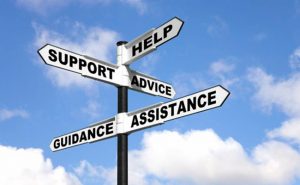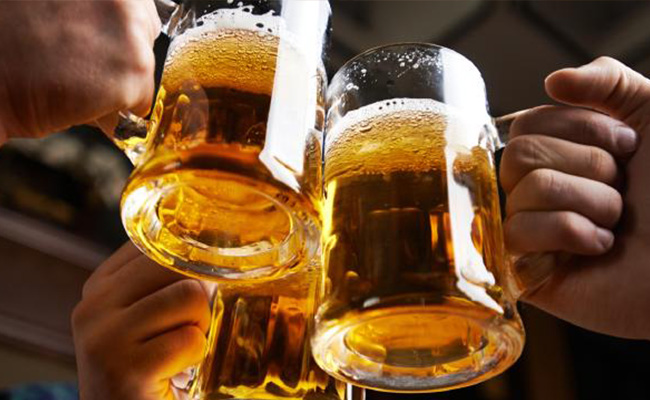What is Alcoholism?
Alcohol abuse or alcoholism is any harmful use of alcohol. This is pretty straightforward. However, alcohol abuse or alcoholism are now known by the clinical name alcohol use disorder. The terms alcohol abuse and alcohol dependence are often used interchangeably by those who are not familiar with the clinical terms. But they are not the same. While an alcohol abuser is prone to binge drinking, someone who is dependent on alcohol may exhibit a wide variety of other symptoms. These differences will be explained as part of this article.
Alcohol Abuse
The DSM IV is a manual used to differentiate between mental and psychological disorders. It describes alcohol abusers as those who continue to drink in spite of recurrent interpersonal, legal, and social problems that have resulted from drinking. The word harmful used above refers to the drinking that causes either physical or mental damage or both. Most often, you can help those who are alcohol abusers with intervention. Especially with education on the dangers of binge drinking and alcohol poisoning.
Alcohol Dependence
If you or someone you know struggles with alcohol dependence, all the above criteria is also met, but further signs and symptoms exist. These can include:
- Narrowing of the drinking repertoire
- Drink seeking behaviors
- Alcohol tolerance
- Withdrawal symptoms
- Drinking to relieve symptoms
- Subjective awareness
- Inability to quit drinking
Each of these will be briefly explained, starting with the narrowing of the drinking repertoire. This may come as a surprise to most, but this is a relatively big sign as the person may move from drinking whatever is available to a specific type of liquor or drink. This could include beer, wine, or a specific type of hard liquor. Many times, brand is also important to the drinker.
Drink seeking behaviors is relatively straight forward as the person will only want to attend events in which alcohol will be present and available. The drinker may also only want to hang out with others who drink so that they are not drinking alone or drinking behaviors will not be noticed.
The next three, alcohol tolerance, withdrawal symptoms, and drinking to relieve symptoms often go hand in hand. Tolerance is needing more of the same drug or substance to attain the same feelings as when someone first started using. For the alcoholic it may mean that when first drinking a single beer could help them to relax and unwind, but now it takes a full bottle of vodka to do the same.
Alcohol Tolerance
As tolerance builds up it will take more and more alcohol to achieve the feeling. This can have the unexpected consequence of alcohol poisoning as the person continues to drink. As tolerance is built and the person continues to drink, if they stop then withdrawal symptoms can start as soon as there is no alcohol in their system. This often leaves the person drinking more to relieve symptoms. Some may say this is to treat a hangover or drink to stop the ‘shakes’.
Many also have subjective awareness about their drinking. There may be a compulsion or craving for alcohol that is notable even if the user does not acknowledge that it is happening. This tends to related to the return to drinking after a period of abstaining. The person may try to quit on their own, but fail due to the cravings.
Alcohol Withdrawal
Those with alcohol dependence typically require outside help in order to stop drinking. This may include detox, medical treatment, and professional rehabilitation. If you are alcohol dependent and decide to quit drinking then expect withdrawal symptoms to peak around 24 to 72 hours after the last drink and potentially continue for weeks. Those with mild issues may be able to enter recovery using only medical updates and out-patient therapy, but those with moderate to severe drinking issues will likely require inpatient treatment. This could involve fluids, sedation, and close monitoring of vital signs.
If you think you are experiencing withdrawal symptoms seek medical attention right away. If you are unsure what to expect, look for the following signs of withdrawal:
- Fever
- Hallucinations
- Seizures
- Severe confusion
Still Uncertain
If you have read and understood the signs and symptoms, but still question whether you or a loved one has a drinking problem then ask yourself two simple questions: Are the drinking habits safe, risky, or harmful? And Are you abusing alcohol or alcohol dependent? If either of the answers is yes, it is best to seek professional help.
Help at DARA

If you think you have an alcohol dependence or abuse problem then seek the best help available. That help can be found at the affordable, in-patient facilities at any of the DARA locations around the world. Whether you want to spend your rehab in Thailand, Wellington, or Sydney, a spot is available. Simply call to book a stay at any of the resort style rehabs that will help you work your way back into the every day life that you lost to drinking.
DARA has been created for those seeking a comprehensive, yet discreet program that cannot be matched by other rehab facilities. The program is evidence based with a team of skilled, yet flexible individuals that will tailor the program to fit each individual client. All clients are expected to willingly participate in both group and individual therapeutic activities where clients will be encouraged to look at the causes and roots of their alcohol dependence. Together with staff they will address problematic behaviors and behavioral patterns that have fed into the addiction. Through this process DARA can help to build enduring recoveries for those in attendance.
DARA offers different program lengths at four, six, and eight weeks using a range of approaches, but a focus on cognitive behavioral therapy. Cognitive behavioral therapy helps you to change the way you think which to change the way you behave. This is useful in helping with behaviors related to alcoholism like anxiety, depression, phobias, OCD, and many others.
Are You Ready?
If you are ready to seek the treatment you deserve then give one of DARA’s centers a call. You are the only one that can choose to change your life, but you have to take the first step of admitting a problem and then making that call. Someone is available 24/7 to take your call and help you get started.
CLICK HERE to get a Free Confidential Addiction Rehabilitation Assessment. Alternatively, you can click on the live chat icon to chat with someone right now.
Latest posts by Darren Lockie (see all)
- Cocaine burnout - February 25, 2020
- What is pathological lying? - February 21, 2020
- Ireland’s growing drug problem - January 20, 2020
+66 8 7140 7788









